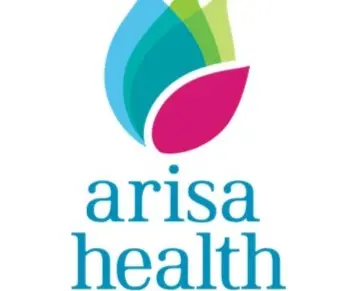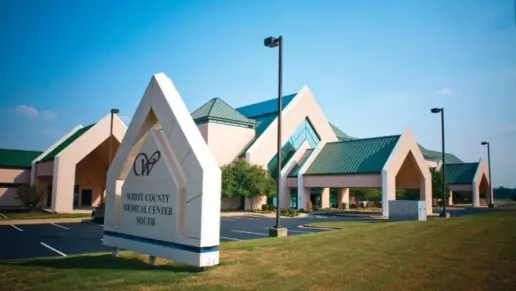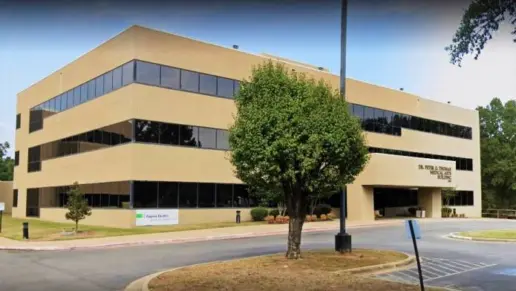I made my appointment a week ago and the day it was my turn to arrive they call me to ask me if I could reprogram it because they made a mistake and programmed my appointment in a different hour. They only made me waste my time. Bad experience.
About Central Arkansas Veterans Healthcare System – Conway Outpatient Clinic
The Conway VA Clinic helps veterans stay healthy and thrive by delivering quality primary and specialty healthcare services. They offer mental health support, smoking and tobacco cessation and telehealth. The clinic is located in Conway, Arkansas about 30 miles northwest of Little Rock, the state capital.
When driving from Little Rock, take I-40 West to Exit 129B for Dave Ward Drive. Continue on Dave Ward Drive and the clinic will be on the right. It’s roughly 35 to 40 minutes drive.
Vets from nearby Greenbrier, Mayflower and Vilonia can drive to the facility in under 20 minutes. They offer free parking and wheelchair access. You may also receive mileage reimbursement to and from your appointment if eligible.
Their mental health department offers treatment for substance use and common behavioral issues. This includes PTSD, depression and anxiety. They can address dual diagnosis as well. This is when someone is struggling with both mental health issues and addictive behavior. Their services involve consultation, evaluation and outpatient therapy in group and individual settings.
Behavioral therapy like this helps you uncover the underlying emotional or psychological issues fueling your substance use. They equip you with practical skills and tools to manage triggers and prevent relapse.
You can choose to attend sessions in person or virtually via telehealth. They offer both video conferencing and home telehealth services. This also lets undergo medical checkups and talk about your care with your provider all from home. This can be super comfy.
That said, in person sessions have its advantages as well. It enables you to explore some of the natural attractions that adorn Conway. Some of these are Cadron Settlement Park, Faulkner County Museum and Daniel Greathouse Log Cabin. Exploring these spots can really boost your physical and mental well-being. It can also form part of a nature therapy to spice up your healing journey here.
Your personalized care may also involve medication assisted treatment if you’re dealing with opioid addiction. This means using meds to alleviate cravings and withdrawal symptoms. This delivers holistic healing when combined with behavioral therapy.
A very unique service available at this clinic is smoking and tobacco cessation. Trying to quit smoking can be frustrating and often feels like a lost cause. This clinic ensures you’re not lonely in that struggle. They offer strategies to support optional nicotine replacement therapy prescribed by your primary care doctor.
This may include prescribing meds approved by the FDA to help you manage nicotine withdrawal and the urge to smoke. They normally back this up with in person or phone counseling to deliver the best outcomes. You can also receive individual counseling and other recovery strategies via their Tobacco Cessation Quitline. These strategies can be effective in helping you quit smoking and enjoy a life free of tobacco.
The facility offers flexible payment options that make their services affordable and accessible. These include Medicare, Medicaid and Tricare. Financial aid is also available if you’re eligible.
Latest Reviews
Rehab Score
Gallery
Other Forms of Payment
Self-pay involves paying for treatment out of your own pocket. You can use savings or credit, get a personal loan, or receive help from family and friends to fund your treatment. If you don't have insurance or your insurance plan doesn't cover a specific program, self-pay can help ensure you still get the care you need.
Medicaid is a state based program that helps lower-income individuals and families pay for healthcare. Medicaid covers addiction treatment so those enrolled can use their coverage to pay for rehab. When a program accepts Medicaid the client often pays very little or nothing out of their own pocket.
Military members, veterans, and eligible dependents have access to specific insurance programs that help them get the care they need. TRICARE and VA insurance can help you access low cost or no cost addiction and mental health treatment. Programs that accept military insurance often have targeted treatment focused on the unique challenges military members, veterans, and their families face.
Medicare is a federal program that provides health insurance for those 65 and older. It also serves people under 65 with chronic and disabling health challenges. To use Medicare for addiction treatment you need to find a program that accepts Medicare and is in network with your plan. Out of pocket costs and preauthorization requirements vary, so always check with your provider.
Private insurance refers to any kind of healthcare coverage that isn't from the state or federal government. This includes individual and family plans offered by an employer or purchased from the Insurance Marketplace. Every plan will have different requirements and out of pocket costs so be sure to get the full details before you start treatment.
Addiction Treatments
Levels of Care
Treatments
The goal of treatment for alcoholism is abstinence. Those with poor social support, poor motivation, or psychiatric disorders tend to relapse within a few years of treatment. For these people, success is measured by longer periods of abstinence, reduced use of alcohol, better health, and improved social functioning. Recovery and Maintenance are usually based on 12 step programs and AA meetings.
The goal of drug rehab in Arkansas is to help individuals stop using addictive substances and learn healthy ways to remain clean long-term. Participants learn vital skills to cope with cravings and manage stress, to prevent relapse.
A combined mental health and substance abuse rehab has the staff and resources available to handle individuals with both mental health and substance abuse issues. It can be challenging to determine where a specific symptom stems from (a mental health issue or an issue related to substance abuse), so mental health and substance abuse professionals are helpful in detangling symptoms and keeping treatment on track.
Opioid rehabs specialize in supporting those recovering from opioid addiction. They treat those suffering from addiction to illegal opioids like heroin, as well as prescription drugs like oxycodone. These centers typically combine both physical as well as mental and emotional support to help stop addiction. Physical support often includes medical detox and subsequent medical support (including medication), and mental support includes in-depth therapy to address the underlying causes of addiction.
Programs




Clinical Services
Cognitive Behavioral Therapy (CBT) is a therapy modality that focuses on the relationship between one's thoughts, feelings, and behaviors. It is used to establish and allow for healthy responses to thoughts and feelings (instead of unhealthy responses, like using drugs or alcohol). CBT has been proven effective for recovering addicts of all kinds, and is used to strengthen a patient's own self-awareness and ability to self-regulate. CBT allows individuals to monitor their own emotional state, become more adept at communicating with others, and manage stress without needing to engage in substance abuse.
Whether a marriage or other committed relationship, an intimate partnership is one of the most important aspects of a person's life. Drug and alcohol addiction affects both members of a couple in deep and meaningful ways, as does rehab and recovery. Couples therapy and other couples-focused treatment programs are significant parts of exploring triggers of addiction, as well as learning how to build healthy patterns to support ongoing sobriety.
Dialectical Behavior Therapy (DBT) is a modified form of Cognitive Behavioral Therapy (CBT), a treatment designed to help people understand and ultimately affect the relationship between their thoughts, feelings, and behaviors. DBT is often used for individuals who struggle with self-harm behaviors, such as self-mutilation (cutting) and suicidal thoughts, urges, or attempts. It has been proven clinically effective for those who struggle with out-of-control emotions and mental health illnesses like Borderline Personality Disorder.
Research clearly demonstrates that recovery is far more successful and sustainable when loved ones like family members participate in rehab and substance abuse treatment. Genetic factors may be at play when it comes to drug and alcohol addiction, as well as mental health issues. Family dynamics often play a critical role in addiction triggers, and if properly educated, family members can be a strong source of support when it comes to rehabilitation.
Group therapy is any therapeutic work that happens in a group (not one-on-one). There are a number of different group therapy modalities, including support groups, experiential therapy, psycho-education, and more. Group therapy involves treatment as well as processing interaction between group members.
In individual therapy, a patient meets one-on-one with a trained psychologist or counselor. Therapy is a pivotal part of effective substance abuse treatment, as it often covers root causes of addiction, including challenges faced by the patient in their social, family, and work/school life.
Life skills trainings involve all the skills a person must have in order to function successfully in the world. These include time management, career guidance, money management, and effective communication. Truly successful addiction recovery is based on the ability to not only live substance-free, but to thrive. Life skills teaches the practical necessities of functioning in society, which sets clients up for success in life, and therefore sobriety.
Motivational Interviewing (MI) is a clinical approach to helping people with substance abuse issues and other conditions shift behavior in positive ways. It is more goal-oriented than traditional psychotherapy, as MI counselors directly attempt to get clients to consider making behavioral change (rather than wait for them to come to conclusions themselves). Its primary purpose is to resolve ambivalence and help clients become able to make healthy choices freely.
Trauma therapy addresses traumatic incidents from a client's past that are likely affecting their present-day experience. Trauma is often one of the primary triggers and potential causes of addiction, and can stem from child sexual abuse, domestic violence, having a parent with a mental illness, losing one or both parents at a young age, teenage or adult sexual assault, or any number of other factors. The purpose of trauma therapy is to allow a patient to process trauma and move through and past it, with the help of trained and compassionate mental health professionals.
Amenities
-
Private Setting
-
Private Transportation
Accreditations

The Joint Commission, formerly known as JCAHO, is a nonprofit organization that accredits rehab organizations and programs. Founded in 1951, the Joint Commision's mission is to improve the quality of patient care and demonstrating the quality of patient care.
Joint Commission Accreditation: Yes
Accreditation Number: 2637
Contact Information
1520 East Dave Ward Drive
Conway, AR 72032


